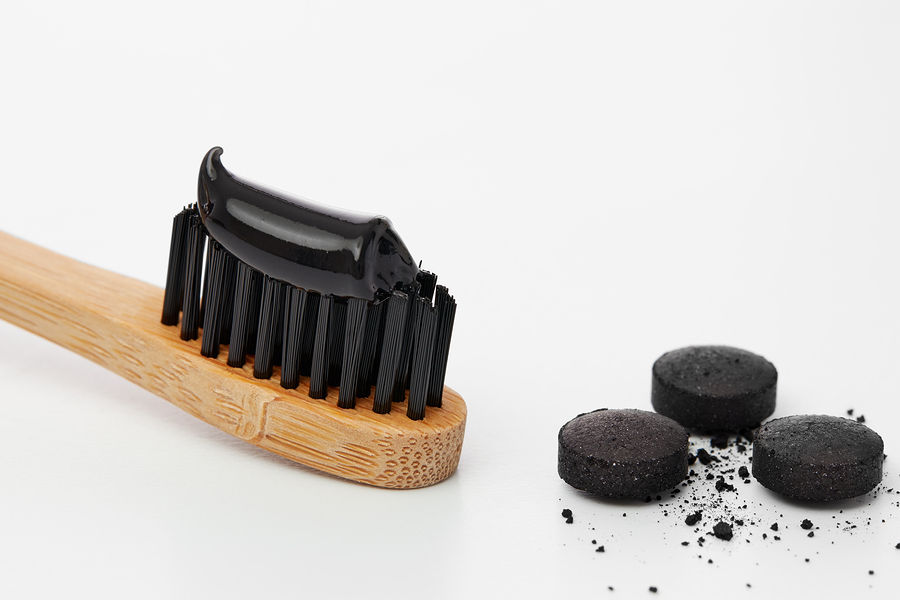Charcoal. And It Is Not For Your BBQ!
- Dr. Duke Bui
- Jun 19, 2018
- 3 min read

Activated charcoal powder is one of the most popular teeth whitening techniques. Although the concept supposedly dates back thousands of years in Ayurvedic medicine, brightening teeth with charcoal is a rather modern method.
Charcoal powder is made up of very absorbent small particles. Small pores on each speck of charcoal dust allow it to soak up toxins. This absorbent property makes charcoal a lifesaver when treating cases of poisoning.
Many people are now confident that activated charcoal’s ability to absorb toxins means it can soak the stain right out of discolored teeth.
Countless bloggers, celebrities, and social media stars tout the benefits of charcoal for whitening teeth. Could it work for you, as well?
A Tacoma cosmetic dentist explains the pros and cons of using charcoal to whiten teeth.
Benefits of Whitening with Charcoal
Using charcoal to get a whiter smile has a few pros:
All-natural
Inexpensive
Zero bleaching chemicals
Non-toxic if swallowed
There are usually dramatic results on the first try
But before you run out and a buy a supply of activated charcoal, make sure you’re prepared for the negatives.
Downsides of Activated Charcoal for Bleaching
You might not like whitening your teeth with charcoal for the following reasons:
Charcoal will stain everything in your bathroom if you aren’t careful
Charcoal powder can be abrasive on tooth enamel
Activated charcoal has its limits; it won’t whiten teeth with deep discoloration
Frequent use can lead to a black stain on your tongue
Does Activated Charcoal Really Whiten Teeth?
Tooth discoloration is usually caused by pigments from food that get embedded deep within the enamel. Science has yet to prove whether the absorbent charcoal particles can absorb such stains from teeth as it absorbs toxins from the body.
More commonly, brushing with charcoal gets dramatic initial results because the grittiness wicks away the day’s layer of tooth-dulling plaque.
Like the ingredients found in whitening toothpastes, charcoal is abrasive. This lets it scrub away surface stains. It can’t touch any discoloration that happens deep within teeth, however. You’ll need a professional teeth bleaching treatment to lighten teeth that have yellowed with age.
Whiten with Caution if Using Charcoal
It’s better to stay away from activated charcoal if you suffer from gum recession, active decay, worn enamel, or chipped or sensitive teeth. The grittiness could cause you needless discomfort and even worsen your situation.
If you decide to whiten using charcoal powder, stick to doing so no more than once a week, even if your teeth feel fine. Stop use right away and see a dentist in Tacoma if the charcoal makes your teeth feel sensitive or makes your gums bleed.
To safely whiten your teeth with activated charcoal, don’t just pull a charcoal briquette out of your barbeque grill! Make sure to choose a dentist-approved product or one found in a health food store.
Activated charcoal should never be used in place of regular toothpaste as it’s too abrasive. You can most safely whiten your teeth by letting the charcoal soak on your teeth rather than brushing it in. Mix a capsule of the powder with some water and put that paste on your teeth for a few minutes then rinse without scrubbing.
In summary, activated charcoal can help lighten tooth color to a limited extent, but you shouldn’t use it too often.
Get more tips for a healthy and gorgeous smile by planning your visit to Duke Bui, DDS, PS - Family Dentistry.






























Comments